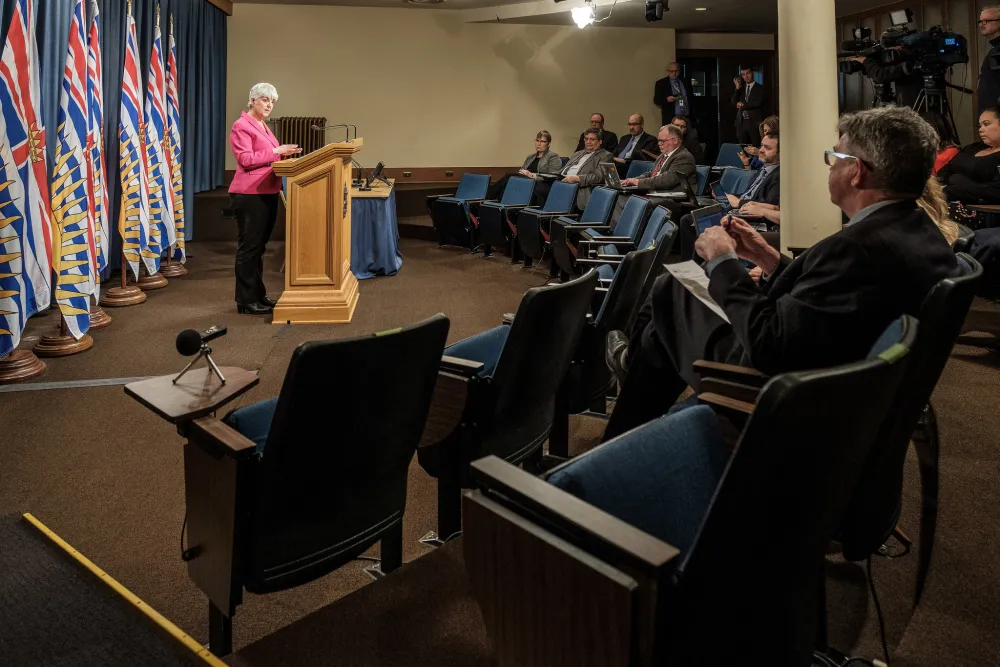VANCOUVER / MUSQUEAM, SQUAMISH & TSLEIL-WAUTUTH TERRITORIES — Karen Tam Wu, B.C. regional director at the Pembina Institute, made the following statement in response to the B.C. government’s legislation on the LNG fiscal framework:
“With the new legislation meant to attract LNG investment, it now becomes more important than ever to look at all options to reduce carbon pollution from such development. The natural gas sector is already B.C.’s largest source of industrial carbon pollution, and is poised to become even bigger. To have any credible chance of achieving B.C.’s climate targets, carbon pollution from the gas sector must be significantly reduced.
“The government has asserted that all new LNG development must fit within B.C.’s climate plan, but to date it has not demonstrated how this is possible. All carbon pollution from new LNG terminals and associated upstream gas development must be accounted for in carbon budgets that are consistent with B.C.’s targets.
“The full potential of existing technologies is not currently being utilized. Significant opportunities to reduce pollution from associated upstream gas development should be acted upon, including using more clean electricity to power operations, and updating newly announced methane regulations to require more frequent leak inspection in line with leading jurisdictions.
“With the provincial government doubling down on attracting and securing LNG investments, it must also double down on taking bold action to reduce carbon pollution. The government must move quickly to implement the commitments outlined in CleanBC, and introduce an ambitious second phase to achieve B.C.’s climate targets, and design and implement a clean energy development strategy.”
Quick facts
- B.C.’s gas sector accounts for 11.7 million tonnes (Mt CO2e) of annual carbon pollution, or 19 per cent of the province’s total emissions. The sector is already B.C.’s largest source of industrial emissions and is forecasted to grow further with LNG development.
- According to government forecasts, Phase 1 of LNG Canada will increase B.C.’s carbon pollution by 3.45 Mt. At full build-out (Phase 1 and 2), carbon pollution from LNG Canada and associated upstream gas production would be 8.6 Mt.
- B.C.’s climate targets are 38 Mt (40 per cent below 2007 levels) in 2030, and 13 Mt (80 per cent below 2007 levels) in 2050.
- Methane pollution from B.C.’s gas sector is currently underreported. Recent studies estimate real world emissions are at least 2.5 times higher than reported.
[30]
Join the conversation on Twitter: #LNGinBC @Pembina
Contact
Stephen Hui
Senior Communications Lead, Pembina Institute
778-987-7654
stephenh@pembina.org
Tw: @StephenHui
Background
Backgrounder: Limiting Methane Pollution from B.C.’s Gas Sector
Backgrounder: Liquefied Natural Gas, Carbon Pollution, and British Columbia in 2017
About the Pembina Institute
The Pembina Institute is a non-profit think-tank that advocates for strong, effective policies to support Canada’s clean energy transition. We have offices in Vancouver, Calgary, Edmonton, Toronto, and Ottawa. Learn more: www.pembina.org




